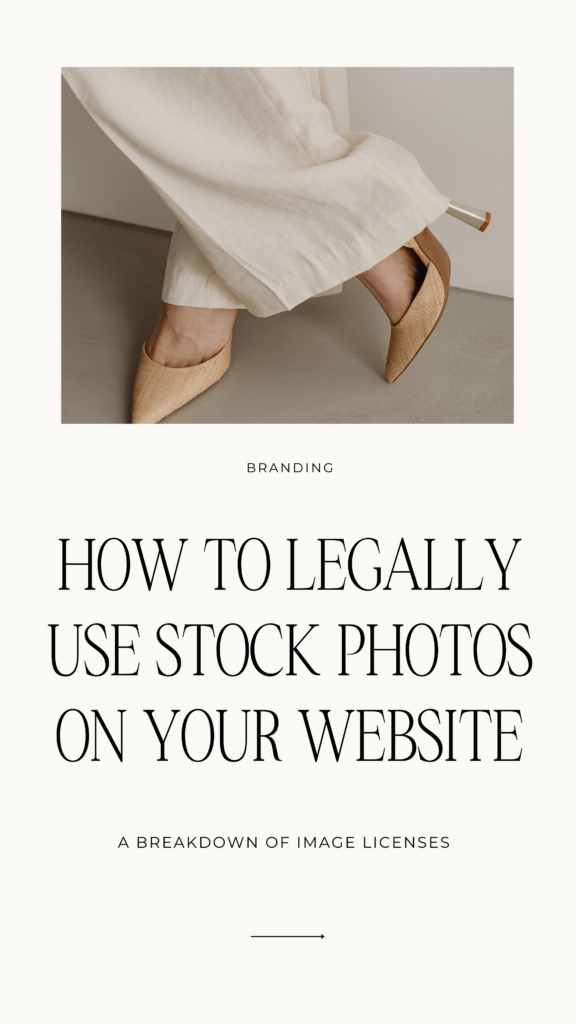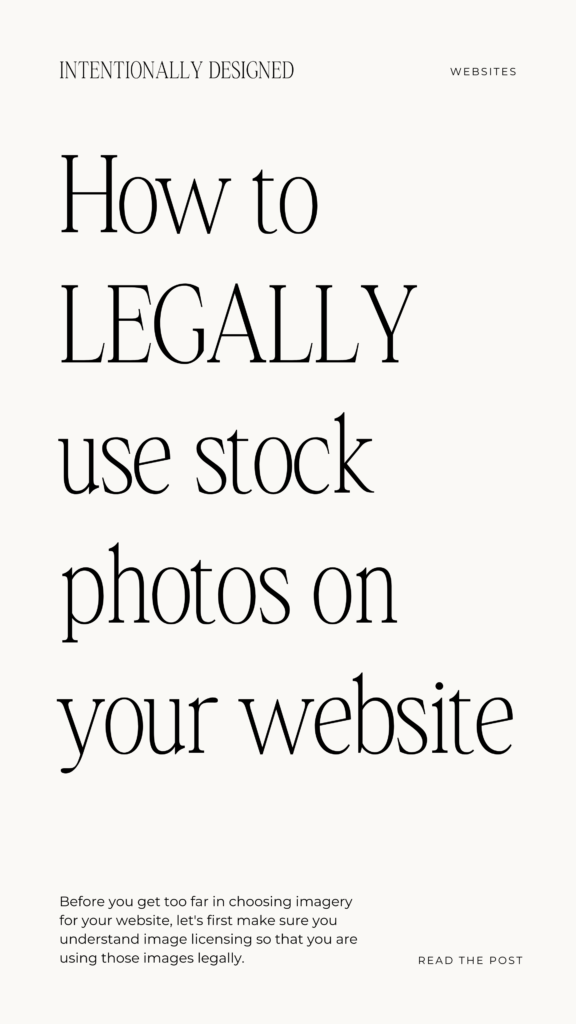When you dive into building your website, one of the first things you’ll probably think about is the images. The images you use on your website have the power to make or break the design and can drastically change the look and feel of the site, so they are kind of important. But using images on your website isn’t as straightforward as you might think. It’s not as simple as finding an image on the internet and plugging it into your website. Before you get too far in choosing imagery for your website, let’s first make sure you understand how to legally use stock photos on your website.
What is image licensing and why it’s important
Image licensing is a legal agreement between the creator or owner of an image and the person or business who wants to use it. It decides how you can use the image, for how long, and what rights you have. It’s important to know about the different types of licenses so you can make smart choices when using your images.
Most images are protected by copyright laws. Using copyrighted images without proper authorization can lead to legal issues, fines, or even the removal of your website. By knowing the different types of licenses and getting images from reliable platforms, you can confidently choose and use images for your website without worrying about any legal stuff.
When you use stock photos, you’re essentially purchasing a license that grants you the right to use the image under specific terms and conditions. This means you can use these images legally on your website without worrying about copyright violations.
Different types of image licenses
Understanding the various types of image licenses is crucial for making sure you know how to legally use stock photos and ensuring you’re in compliance with copyright laws and the terms of use. Here are some common types of image licenses:
Public Domain
Public domain images are not subject to copyright restrictions, and anyone can use them for any purpose without permission. These images can be freely used, modified, and distributed. However, it’s important to verify the public domain status of an image before using it, as some public domain images may have certain usage restrictions.
Creative Commons
Creative Commons licenses offer a range of permissions granted by the image creators while retaining copyright. There are several types of Creative Commons licenses, each with its own conditions. These licenses may allow you to use, modify, and distribute the image as long as you comply with the specified terms (such as giving attribution or using the image for non-commercial purposes). It’s essential to review the specific requirements of the chosen Creative Commons license.
Royalty-Free
Royalty-free images can be used after a one-time payment, and the user typically doesn’t need to pay additional royalties based on usage or sales. However, the term “royalty-free” doesn’t mean the image is free of cost. You still need to purchase a license to use the image, but you can generally use it in multiple projects without additional fees. Ensure you read and understand the licensing agreement to know the permitted uses and any restrictions.
Stock Photography
Stock photography websites offer a vast collection of images that you can license for use on your website. These websites usually provide various licensing options, allowing you to choose the appropriate license based on your specific requirements. Pricing and usage terms may vary, so it’s crucial to review the license agreements and restrictions before using any images from stock photography websites.
How to make sure you’re using your images legally
I know it can be a little confusing when it comes to image licensing. But these steps will help to make sure you are using the images legally on your website.
- Choose Reputable Stock Photo Websites: Start by using well-established stock photo websites like Shutterstock, Adobe Stock, or Getty Images. These platforms provide clear licensing terms and high-quality images.
- Read and Understand Licensing Terms: Before downloading an image, carefully read and understand the licensing terms associated with it. Pay attention to usage rights, restrictions, and any attribution requirements.
- Purchase the Appropriate License: Select a license that aligns with your intended use of the image. If you plan to use it for commercial purposes, make sure to purchase a commercial license.
- Keep Records: Maintain a record of all the images you’ve purchased, including their licenses. This documentation can be essential if any legal issues arise.
- Follow Attribution Guidelines: If the image requires attribution, ensure that you provide the necessary credit to the creator as specified in the license.
- Avoid Image Alterations: Some licenses may restrict you from altering the image. Respect these limitations and refrain from making significant changes to the stock photo.
- Regularly Review Licensing Terms: Stock photo websites may update their licensing terms, so periodically review your licenses to ensure continued compliance.

Resources
Save for later








